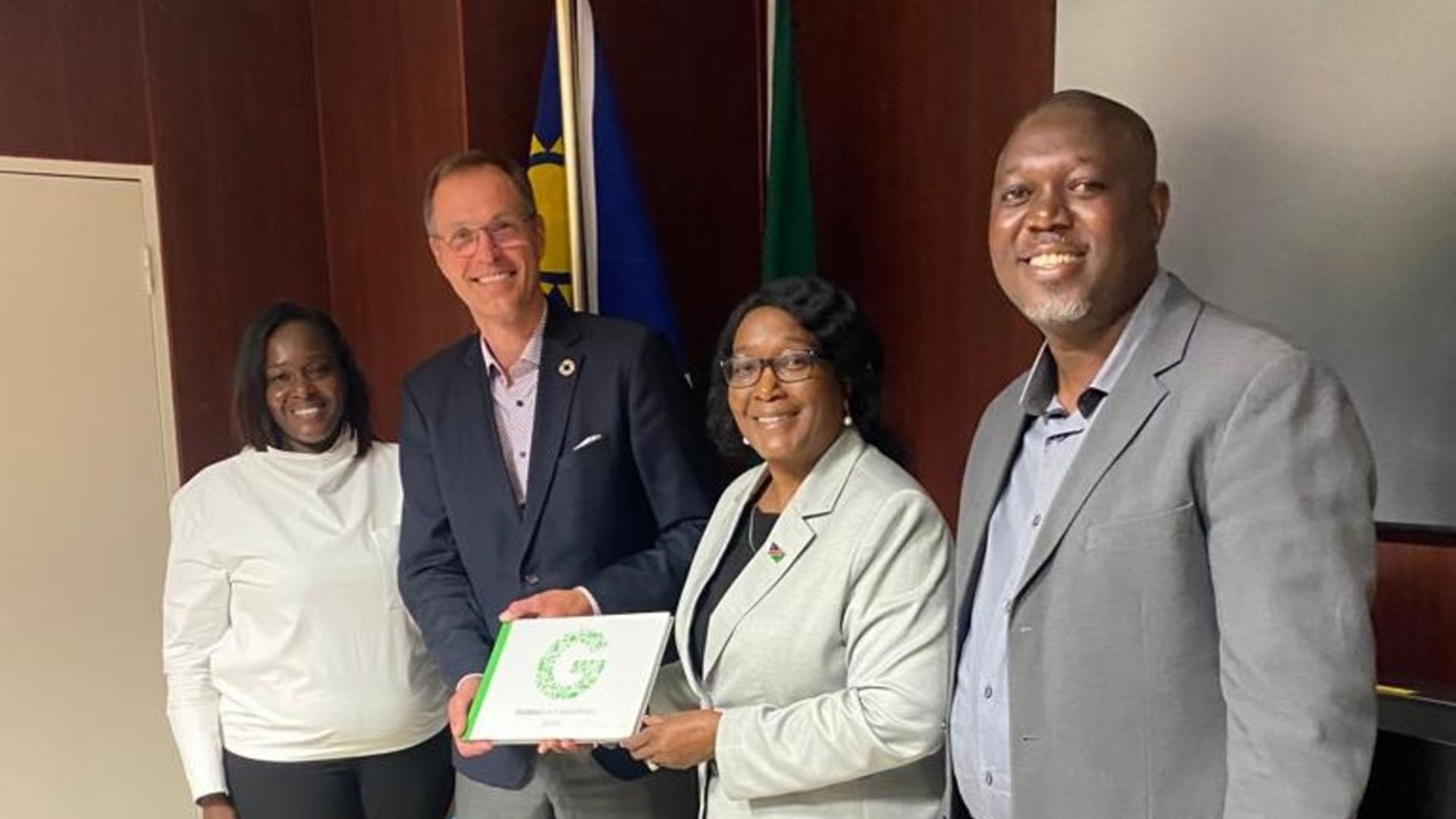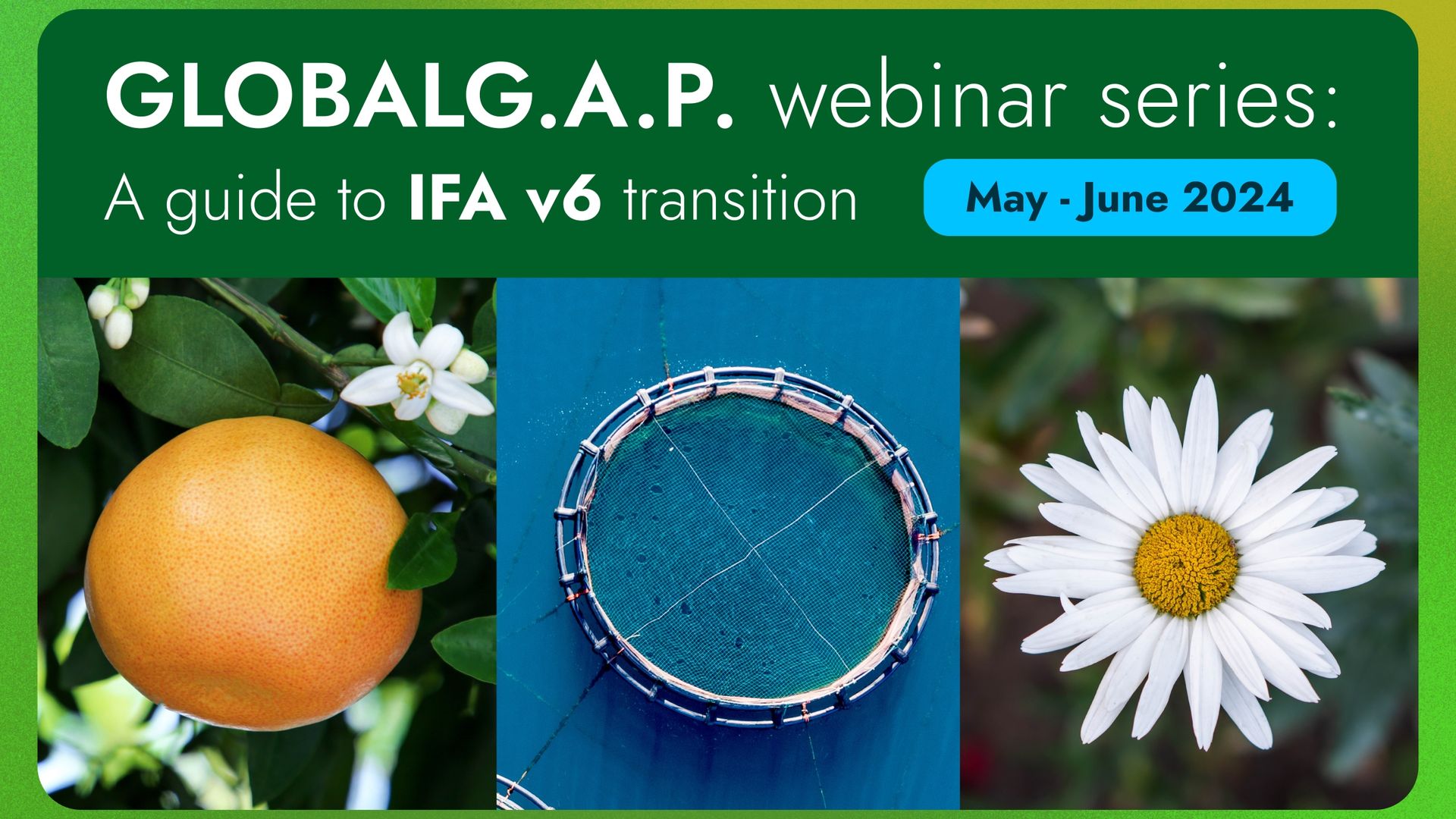30 June 2022
Namibian government welcomes GLOBALG.A.P. standards
GLOBALG.A.P. and the Namibian Ministry of Agriculture, Water and Land Reform discussed the topics of food security and reducing import dependence.
Outlining some of the central challenges facing the country, GLOBALG.A.P. and the Namibian Ministry of Agriculture, Water and Land Reform discussed the topics of food security and reducing import dependence during a May meeting in Windhoek.
Expanding horizons through responsible farming practices
The Ministry of Agriculture, Water and Land Reform welcomed the prospect of GLOBALG.A.P. certification in Namibia and recognized GLOBALG.A.P.’s efforts in collaboration and capacity development. In particular, the government highlighted their appreciation of the close cooperation with the Namibian Agronomic Board (NAB), represented at the meeting by Chief Executive Officer Dr. Fidelis N. Mwazi, and offered maximum political support to the work of the ongoing partnership.
Introducing farm assurance solutions – a range of certification and add-on programs and their delivery services – to the country will help not only to produce enough safe food for the domestic market, but also open the door to international trade, particularly in the Southern African region. The Ministry noted that demonstrating the business opportunities that responsibly farmed products can offer to growing markets is an effective focus area.
“Namibia is set to join the wider family of countries using GLOBALG.A.P. standards,” the Hon. Anna Shiweda, Deputy Minister of Agriculture, Water and Land Reform, commented. Shiweda said Namibia was “reaching out to farmers in every corner of our country and enabling them to produce a safe product that the market wants.”
Building foundations for standard implementation
During the meeting with GLOBALG.A.P. Managing Director Dr. Kristian Moeller, next steps were discussed regarding the development of national interpretation guidelines for Namibia. This process involves adapting a global standard such as Integrated Farm Assurance (IFA) to national legislation for more effective implementation that considers local conditions.
Secondly, draft legislation was put forward in reference to minimum requirements for any commercial sales of crop-based products in Namibia. This would require at least a localg.a.p. Primary Farm Assurance assessment at entry level.
According to technical expert Brian Windsor from the global certification body NSF, the introduction of such standards has many benefits for farmers, extending beyond market access to include aspects such as the overall reduction of production costs through optimized organization and documentation.
Technical training illuminates path to certification
In addition to discussions on standard implementation, GLOBALG.A.P. delivered on-site food hygiene training to NAB technical staff. This completed the formal prerequisite step for NAB inspectors [DD1] to assess the localg.a.p. Primary Farm Assurance standards. The NAB also organized a well-attended workshop that dived deeper into the stepwise approach of localg.a.p. and clarified the potential journey towards achieving full IFA certification.
Following other GLOBALG.A.P. activities in the Southern African region, such as the meeting with Zambian government officials earlier in May, Deputy Minister the Hon. Anna Shiweda encouraged other neighboring countries to recognize GLOBALG.A.P. farm assurance standards as a tool to facilitate cross-border trade.
More information on the localg.a.p. program and how it works can be found in this video.
Latest news and events
11 April 2024
New GLOBALG.A.P. webinar series: A guide to IFA v6 transition
26 March 2024
Exploring Fish International 2024
Apr 22, 2024 - Apr 26, 2024
Academy training: IFA v6 for fruit and vegetables in French
Apr 23, 2024
Seafood Expo Global 2024 – Panel discussion
May 06, 2024 - May 10, 2024
Academy training: IFA v6 for fruit and vegetables in English
May 30, 2024 - May 31, 2024
Academy training: SPRING v2 in Spanish
Jul 01, 2024 - Jul 05, 2024
Academy training: IFA v6 for fruit and vegetables in English


